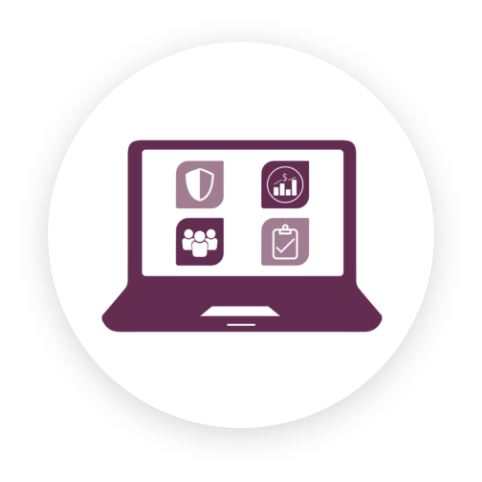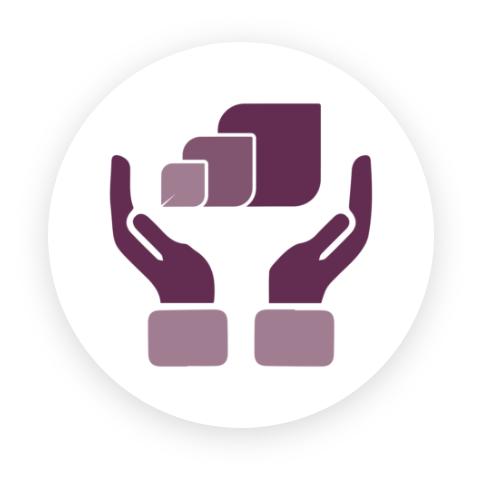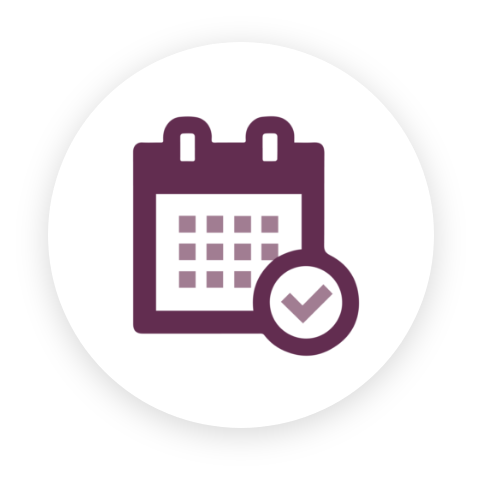- Who We Are
-
Meet the TeamMeet the Team
-
Meet Our HR ConsultantsMeet Our HR Consultants
-
TestimonialsTestimonials
-
- What We Do
- HR Director
- Annual Support Agreements
- Drake P3 Assessments
- Reference and Background Checks
- Bonus Pro
- Policy Manual or Employee Handbook Review Service
- Alternative Workweek Schedule: Guide for CA Employers Only
-
The HR DirectorThe HR Director
-
Annual Support AgreementsAnnual Support Agreements
-
Drake P3 AssessmentsDrake P3 Assessments
-
BonusProBonusPro
-
Policy Manual & Handbook Review ServicePolicy Manual & Handbook Review Service
-
Alternative Workweek ScheduleAlternative Workweek Schedule
- Seminars
- HR & Employment Compliance for the Dentist
- Recruiting, Hiring & Onboarding
- People Leadership and Organizational Culture
- Employee Engagement and Appreciation in the Workplace
- Performance Management & Taking Corrective Action
-
People Power: More Effective and Successful HR ManagementPeople Power: More Effective and Successful HR Management
-
Solving the HR Puzzle: Challenges, Requirements and RecommendationsSolving the HR Puzzle: Challenges, Requirements and Recommendations
-
Recruiting, Hiring & OnboardingRecruiting, Hiring & Onboarding
-
Performance Management & Taking Corrective ActionPerformance Management & Taking Corrective Action
- Resource Library
- Self Assessment Liability Quiz
- Articles & Publications
- HR Risk Analysis
- Employment Compliance Alerts
- HR Matters Newsletter
-
HR Matters NewsletterHR Matters Newsletter
-
Self-Assessment Liability QuizSelf-Assessment Liability Quiz
-
Articles & PublicationsArticles & Publications
-
Employment Compliance AlertsEmployment Compliance Alerts
-
PodcastPodcast
-
Case StudiesCase Studies
-
Reference and Background ChecksReference and Background Checks
-
Start UpsStart Ups
- Shop
-
HR DirectorHR Director
-
Annual Support AgreementsAnnual Support Agreements
-
Drake P3 AssessmentsDrake P3 Assessments
-
BonusProBonusPro
-
Policy Manual Review ServicePolicy Manual Review Service
-
Alternative Workweek ScheduleAlternative Workweek Schedule
-
- Contact Us
- Who We Are
-
Meet the TeamMeet the Team
-
Meet Our HR ConsultantsMeet Our HR Consultants
-
TestimonialsTestimonials
-
- What We Do
- HR Director
- Annual Support Agreements
- Drake P3 Assessments
- Reference and Background Checks
- Bonus Pro
- Policy Manual or Employee Handbook Review Service
- Alternative Workweek Schedule: Guide for CA Employers Only
-
The HR DirectorThe HR Director
-
Annual Support AgreementsAnnual Support Agreements
-
Drake P3 AssessmentsDrake P3 Assessments
-
BonusProBonusPro
-
Policy Manual & Handbook Review ServicePolicy Manual & Handbook Review Service
-
Alternative Workweek ScheduleAlternative Workweek Schedule
- Seminars
- HR & Employment Compliance for the Dentist
- Recruiting, Hiring & Onboarding
- People Leadership and Organizational Culture
- Employee Engagement and Appreciation in the Workplace
- Performance Management & Taking Corrective Action
-
People Power: More Effective and Successful HR ManagementPeople Power: More Effective and Successful HR Management
-
Solving the HR Puzzle: Challenges, Requirements and RecommendationsSolving the HR Puzzle: Challenges, Requirements and Recommendations
-
Recruiting, Hiring & OnboardingRecruiting, Hiring & Onboarding
-
Performance Management & Taking Corrective ActionPerformance Management & Taking Corrective Action
- Resource Library
- Self Assessment Liability Quiz
- Articles & Publications
- HR Risk Analysis
- Employment Compliance Alerts
- HR Matters Newsletter
-
HR Matters NewsletterHR Matters Newsletter
-
Self-Assessment Liability QuizSelf-Assessment Liability Quiz
-
Articles & PublicationsArticles & Publications
-
Employment Compliance AlertsEmployment Compliance Alerts
-
PodcastPodcast
-
Case StudiesCase Studies
-
Reference and Background ChecksReference and Background Checks
-
Start UpsStart Ups
- Shop
-
HR DirectorHR Director
-
Annual Support AgreementsAnnual Support Agreements
-
Drake P3 AssessmentsDrake P3 Assessments
-
BonusProBonusPro
-
Policy Manual Review ServicePolicy Manual Review Service
-
Alternative Workweek ScheduleAlternative Workweek Schedule
-
- Contact Us
- Who We Are
-
Meet the TeamMeet the Team
-
Meet Our HR ConsultantsMeet Our HR Consultants
-
TestimonialsTestimonials
-
- What We Do
- HR Director
- Annual Support Agreements
- Drake P3 Assessments
- Reference and Background Checks
- Bonus Pro
- Policy Manual or Employee Handbook Review Service
- Alternative Workweek Schedule: Guide for CA Employers Only
-
The HR DirectorThe HR Director
-
Annual Support AgreementsAnnual Support Agreements
-
Drake P3 AssessmentsDrake P3 Assessments
-
BonusProBonusPro
-
Policy Manual & Handbook Review ServicePolicy Manual & Handbook Review Service
-
Alternative Workweek ScheduleAlternative Workweek Schedule
- Seminars
- HR & Employment Compliance for the Dentist
- Recruiting, Hiring & Onboarding
- People Leadership and Organizational Culture
- Employee Engagement and Appreciation in the Workplace
- Performance Management & Taking Corrective Action
-
People Power: More Effective and Successful HR ManagementPeople Power: More Effective and Successful HR Management
-
Solving the HR Puzzle: Challenges, Requirements and RecommendationsSolving the HR Puzzle: Challenges, Requirements and Recommendations
-
Recruiting, Hiring & OnboardingRecruiting, Hiring & Onboarding
-
Performance Management & Taking Corrective ActionPerformance Management & Taking Corrective Action
- Resource Library
- Self Assessment Liability Quiz
- Articles & Publications
- HR Risk Analysis
- Employment Compliance Alerts
- HR Matters Newsletter
-
HR Matters NewsletterHR Matters Newsletter
-
Self-Assessment Liability QuizSelf-Assessment Liability Quiz
-
Articles & PublicationsArticles & Publications
-
Employment Compliance AlertsEmployment Compliance Alerts
-
PodcastPodcast
-
Case StudiesCase Studies
-
Reference and Background ChecksReference and Background Checks
-
Start UpsStart Ups
- Shop
-
HR DirectorHR Director
-
Annual Support AgreementsAnnual Support Agreements
-
Drake P3 AssessmentsDrake P3 Assessments
-
BonusProBonusPro
-
Policy Manual Review ServicePolicy Manual Review Service
-
Alternative Workweek ScheduleAlternative Workweek Schedule
-
- Contact Us
- Who We Are
-
Meet the TeamMeet the Team
-
Meet Our HR ConsultantsMeet Our HR Consultants
-
TestimonialsTestimonials
-
- What We Do
- HR Director
- Annual Support Agreements
- Drake P3 Assessments
- Reference and Background Checks
- Bonus Pro
- Policy Manual or Employee Handbook Review Service
- Alternative Workweek Schedule: Guide for CA Employers Only
-
The HR DirectorThe HR Director
-
Annual Support AgreementsAnnual Support Agreements
-
Drake P3 AssessmentsDrake P3 Assessments
-
BonusProBonusPro
-
Policy Manual & Handbook Review ServicePolicy Manual & Handbook Review Service
-
Alternative Workweek ScheduleAlternative Workweek Schedule
- Seminars
- HR & Employment Compliance for the Dentist
- Recruiting, Hiring & Onboarding
- People Leadership and Organizational Culture
- Employee Engagement and Appreciation in the Workplace
- Performance Management & Taking Corrective Action
-
People Power: More Effective and Successful HR ManagementPeople Power: More Effective and Successful HR Management
-
Solving the HR Puzzle: Challenges, Requirements and RecommendationsSolving the HR Puzzle: Challenges, Requirements and Recommendations
-
Recruiting, Hiring & OnboardingRecruiting, Hiring & Onboarding
-
Performance Management & Taking Corrective ActionPerformance Management & Taking Corrective Action
- Resource Library
- Self Assessment Liability Quiz
- Articles & Publications
- HR Risk Analysis
- Employment Compliance Alerts
- HR Matters Newsletter
-
HR Matters NewsletterHR Matters Newsletter
-
Self-Assessment Liability QuizSelf-Assessment Liability Quiz
-
Articles & PublicationsArticles & Publications
-
Employment Compliance AlertsEmployment Compliance Alerts
-
PodcastPodcast
-
Case StudiesCase Studies
-
Reference and Background ChecksReference and Background Checks
-
Start UpsStart Ups
- Shop
-
HR DirectorHR Director
-
Annual Support AgreementsAnnual Support Agreements
-
Drake P3 AssessmentsDrake P3 Assessments
-
BonusProBonusPro
-
Policy Manual Review ServicePolicy Manual Review Service
-
Alternative Workweek ScheduleAlternative Workweek Schedule
-
- Contact Us
- Who We Are
-
Meet the TeamMeet the Team
-
Meet Our HR ConsultantsMeet Our HR Consultants
-
TestimonialsTestimonials
-
- What We Do
- HR Director
- Annual Support Agreements
- Drake P3 Assessments
- Reference and Background Checks
- Bonus Pro
- Policy Manual or Employee Handbook Review Service
- Alternative Workweek Schedule: Guide for CA Employers Only
-
The HR DirectorThe HR Director
-
Annual Support AgreementsAnnual Support Agreements
-
Drake P3 AssessmentsDrake P3 Assessments
-
BonusProBonusPro
-
Policy Manual & Handbook Review ServicePolicy Manual & Handbook Review Service
-
Alternative Workweek ScheduleAlternative Workweek Schedule
- Seminars
- HR & Employment Compliance for the Dentist
- Recruiting, Hiring & Onboarding
- People Leadership and Organizational Culture
- Employee Engagement and Appreciation in the Workplace
- Performance Management & Taking Corrective Action
-
People Power: More Effective and Successful HR ManagementPeople Power: More Effective and Successful HR Management
-
Solving the HR Puzzle: Challenges, Requirements and RecommendationsSolving the HR Puzzle: Challenges, Requirements and Recommendations
-
Recruiting, Hiring & OnboardingRecruiting, Hiring & Onboarding
-
Performance Management & Taking Corrective ActionPerformance Management & Taking Corrective Action
- Resource Library
- Self Assessment Liability Quiz
- Articles & Publications
- HR Risk Analysis
- Employment Compliance Alerts
- HR Matters Newsletter
-
HR Matters NewsletterHR Matters Newsletter
-
Self-Assessment Liability QuizSelf-Assessment Liability Quiz
-
Articles & PublicationsArticles & Publications
-
Employment Compliance AlertsEmployment Compliance Alerts
-
PodcastPodcast
-
Case StudiesCase Studies
-
Reference and Background ChecksReference and Background Checks
-
Start UpsStart Ups
- Shop
-
HR DirectorHR Director
-
Annual Support AgreementsAnnual Support Agreements
-
Drake P3 AssessmentsDrake P3 Assessments
-
BonusProBonusPro
-
Policy Manual Review ServicePolicy Manual Review Service
-
Alternative Workweek ScheduleAlternative Workweek Schedule
-
- Contact Us








